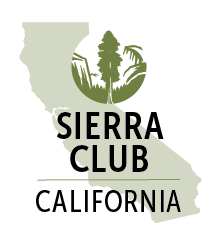
FOR IMMEDIATE RELEASE
May 10, 2022
Contact: Brandon Dawson, brandon.dawson@sierraclub.org
California Air Resources Board Releases Draft 2022 Scoping Plan
Sacramento, CA - Today, the California Air Resources Board (CARB) released the draft 2022 Scoping Plan. The Scoping Plan, mandated by Assembly Bill 32 (Nunez, 2006), lays out California’s strategy for reducing greenhouse gas emissions in California across every sector and is updated every five years.
Last summer, Governor Gavin Newsom asked CARB to evaluate pathways for the state to achieve carbon neutrality by 2035 – in advance of the 2045 target – including strategies to reduce fossil fuel demand and supply.
Unfortunately, the draft 2022 Scoping Plan instead recommends a path that delays achieving carbon neutrality until 2045. It requires little to no immediate action to reduce climate pollution, and even worse, relies on expensive and unproven technology to meet its emission reduction targets. The path laid out in the Scoping Plan will perpetuate fossil fuel production and continue to harm California’s communities and ecosystems.
Every alternative modeled by CARB projects building new gas plant capacity, including the “no combustion” Alternative 1. CARB’s preferred pathway, Alternative 3, proposes to build 10 GW of new gas capacity, equivalent to at least 33 new large gas power plants. The latest IPCC report makes it clear that we must rapidly reduce our reliance on fossil fuels. Continuing to rely on existing fossil fuel infrastructure makes mitigating the negative effects of climate change more and more difficult. Gas plants emit many dangerous pollutants, and the majority of California’s gas-fired power plants are located in or adjacent to many of the state’s most disadvantaged communities.
Additionally, instead of promoting greater investment in renewable energy resources and avoiding emissions entirely, CARB’s preferred pathway relies extensively on carbon capture, usage, and sequestration (CCUS) in addition to direct air capture (DAC) of carbon dioxide. The model unrealistically projects that within the refineries sector, CCUS will operate on the “majority of operations by 2030.”
Statement from Brandon Dawson, Director of Sierra Club California:
“Although CARB staff seem to recognize the urgency of the climate crisis in their presentations to the Board each month, the draft scoping plan does not have that same sense of urgency. Especially concerning is the plan’s reliance on technologies that haven’t been proven to provide the climate and health benefits Californian’s need. CARB must select a pathway to carbon neutrality that is faster and delivers significant reductions in greenhouse gas emissions, air pollution, and adverse health impacts. Additionally, the plan must not rely heavily or at all on carbon capture, use, and sequestration (CCUS) or biofuels. Californians deserve and demand better from our regulators.”
Sierra Club California is the legislative and regulatory arm of Sierra Club’s 13 local chapters in California, representing half a million members and supporters.